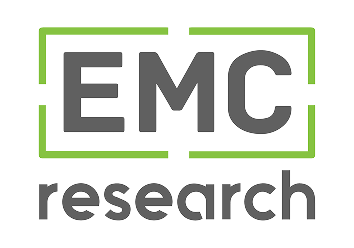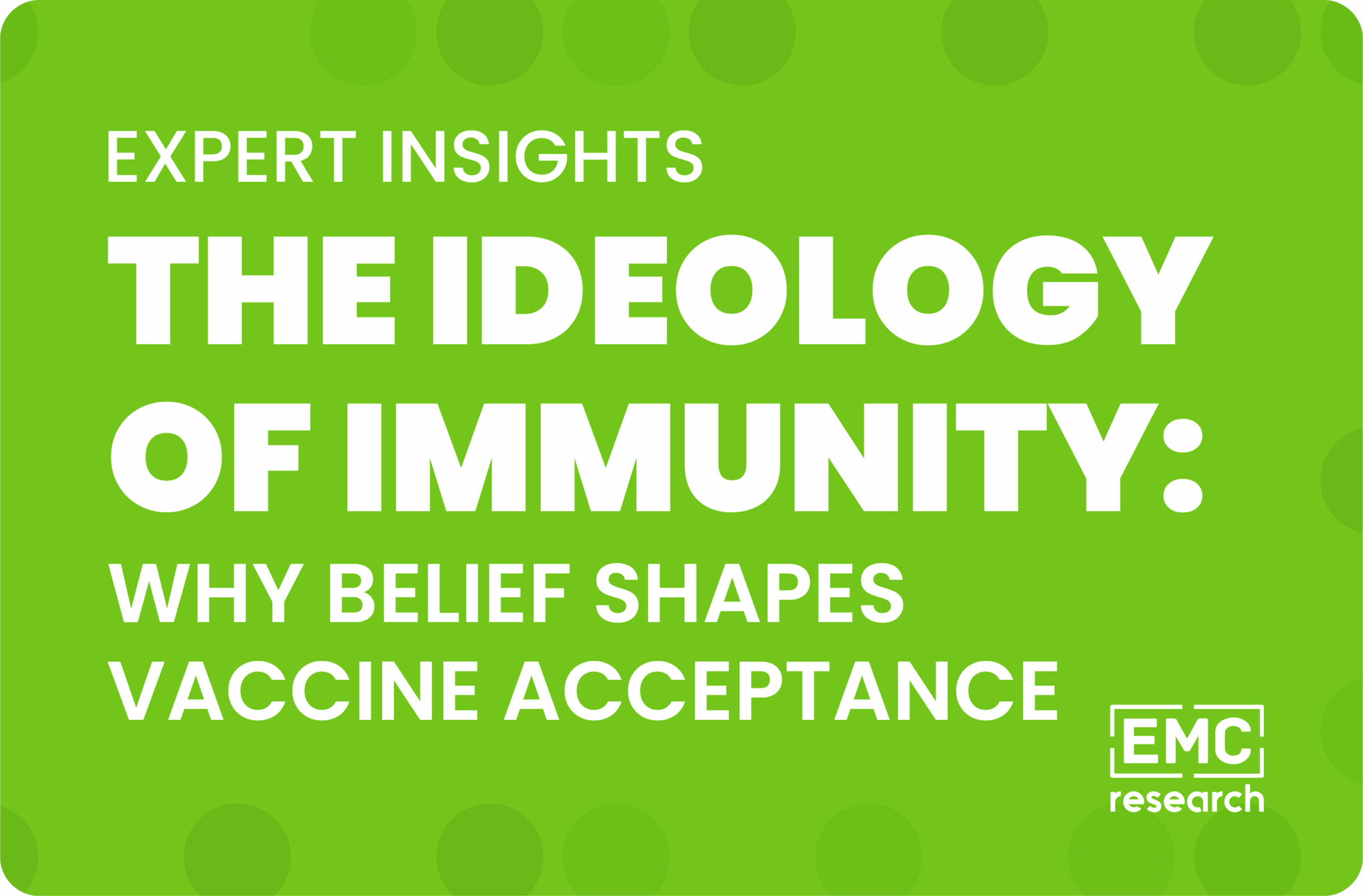August marks National Immunization Month, a time typically reserved for celebrating one of public health’s greatest achievements. Instead, we’re confronting a sobering reality: measles cases in the United States have reached 1,356 confirmed cases across 40 jurisdictions as of mid-July 2025 — a disease we once thought eliminated.
This isn’t just a public health crisis. It’s a stark reminder that public opinion shapes public health outcomes in ways that extend far beyond the political arena.

The Ideology of Immunity
During the COVID-19 pandemic, EMC Research partnered with the State of California to conduct ongoing research that revealed a fundamental truth: ideology was a significant factor in vaccine acceptance. Those who identified as on the left of the political spectrum were generally eager to get vaccinated. The more conservative individuals were, the more ideologically opposed they remained — and they stayed that way throughout the pandemic.
This wasn’t a surprise to those of us who understand how deeply personal beliefs shape health behaviors. What was revealing was how consistently these patterns held, even as the science evolved and the political environment changed.
Through monthly statewide tracking surveys and targeted qualitative research from April 2020 through January 2023, we monitored how Californians’ attitudes shifted — or didn’t shift — toward masking, social distancing, and vaccination. The data informed California’s “Your Actions Save Lives” and “Vaccinate ALL 58” campaigns, helping the state achieve one of the lowest COVID-19 case rates in the nation.
The Stakes Are Higher Now
The current measles outbreak isn’t happening in a vacuum. It’s unfolding against a backdrop of systematic rollbacks of public health protections and recommendations. Recent policy changes have ended routine COVID-19 vaccine recommendations for children, pregnant women, and healthy adults. Insurance companies are reducing coverage for vaccines that were once universally accessible and free.
This matters because our research consistently showed that many people get vaccinated not because they’re personally convinced of the necessity, but because they’re told to by trusted institutions — the CDC, their employers, their healthcare providers. When these institutional recommendations disappear, vaccination rates drop.
The implications extend beyond individual choice. We’re witnessing the gradual deconstruction of public health infrastructure that took decades to build. When trust in institutions erodes and access barriers increase, only those with resources — the wealthy, the educated, the well-connected — maintain protection.

What We Learned About Behavior Change
Our work during the pandemic revealed nuanced insights beyond the liberal-conservative divide. Parents showed greater hesitancy about vaccinating their children than themselves, driven by long-term concerns about newer vaccines. Geographic clusters of resistance formed independent of broader political patterns. And messaging that worked for one community often failed completely in another.
These insights weren’t just academic. They shaped real-world campaigns that saved lives. But they also highlighted an uncomfortable truth: effective public health communication requires understanding not just what people should do, but why they resist doing it.
The Research Imperative
Opinion research isn’t just useful for public health — it’s essential. We don’t have to be epidemiologists to understand that public opinion drives public health outcomes. When we began our California work, we immediately knew this would be a defining issue that would impact lives for years to come.
The measles outbreak we’re witnessing today was predictable. Rising travel, declining vaccination rates, and weakening institutional trust create the perfect conditions for preventable disease outbreaks. Those of us who track public opinion saw this coming.
The question isn’t whether we’ll face more public health challenges — we will. The question is whether we’ll have the tools and insights to respond effectively.
Looking Forward
As we observe National Immunization Month, we’re forced to confront an uncomfortable reality: the public health achievements we’ve taken for granted are more fragile than we realized. The institutions that protected us can be dismantled. The social contracts that ensured widespread vaccination can be broken. This moment demands more than hope — it demands understanding. We need to know what communities think, what they fear, and what might motivate them to act. We need research that goes beyond measuring support and starts identifying pathways to protection.
The work EMC Research does extends far beyond electoral politics. We help organizations understand how to reach communities, how to build trust, and how to motivate behavior change when lives are at stake. This is the kind of work that matters when the stakes are highest.
Because ultimately, protecting public health isn’t just about having the right vaccines or the right policies. It’s about understanding the public we’re trying to protect — and meeting them where they are, not where we wish they were.
Ruth Bernstein
Senior Principal

